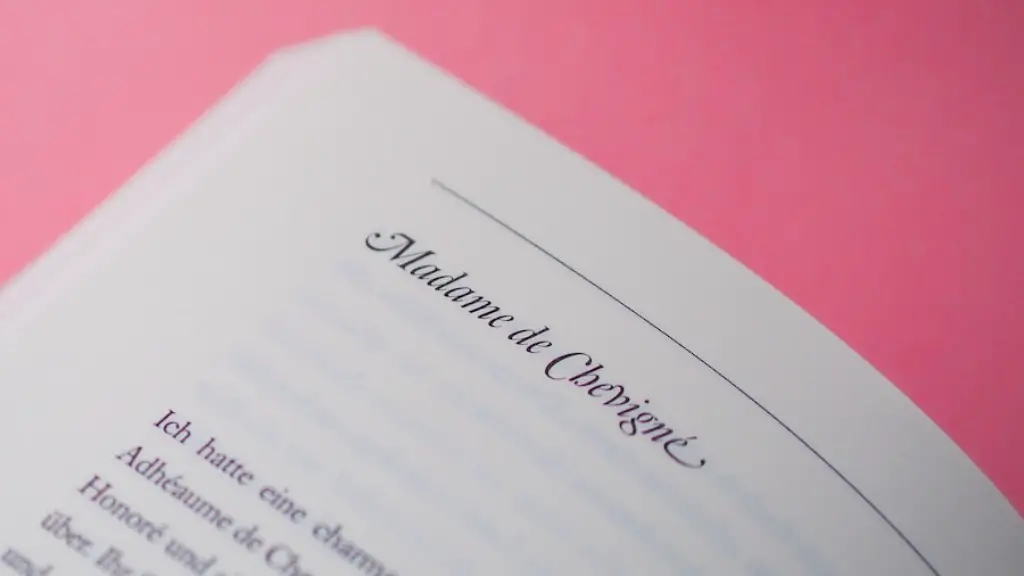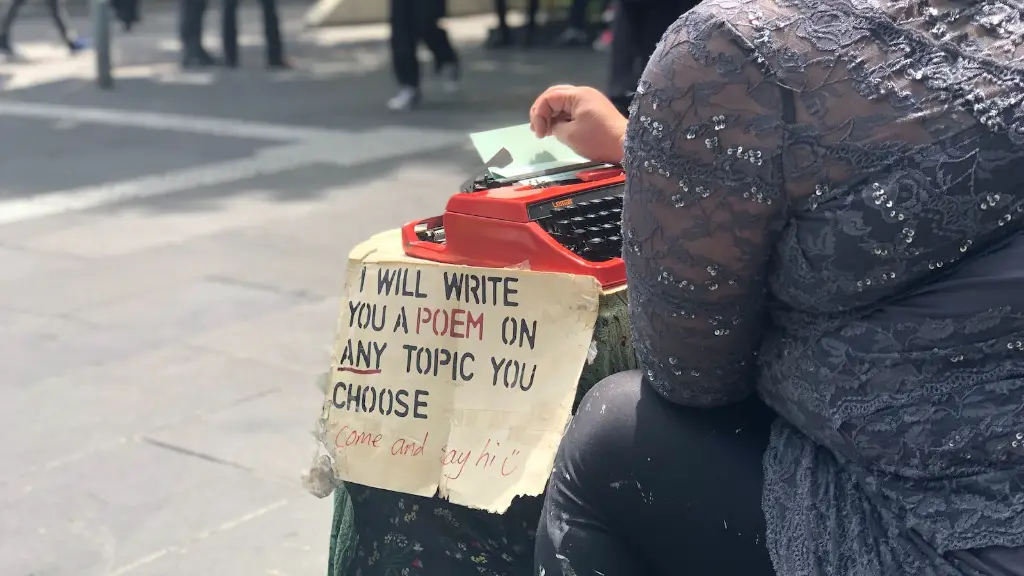Percy Bysshe Shelley was a legendary Romantic poet, a strong advocate of the beauty and power of poetry. He believed that poetry could teach us important lessons and bring us closer to an ideal state. In his famous essay, ‘A Defence of Poetry’, Shelley outlined his vision of poetry’s power and explained why poetry is essential to human progress.
In his essay, Shelley addresses the common misconception that poetry is merely a form of entertainment, or a beautiful but useless art form. His argument is that poetry can, and should, be a tool for philosophical and political reform. Shelley puts forward several ideas in support of his argument. Firstly, he makes the claim that great poetry has the potential to ‘instruct and animate’ the reader, meaning that it can both teach and inspire its readers. He also argues that great poetry can unify mankind through its universal truths and its common understanding of beauty.
Shelley particularly emphasised the importance of poetry in influencing individuals, rather than merely as a form of entertainment. He believed that great poetry had the power to nurture excellence in individuals, and encourage them to be kind, thoughtful and tolerant of others. As he wrote in his essay, ‘[poetry] lifts the veil from the hidden beauty of the world, and makes familiar objects be as if they were not familiar’. Shelley argued that poetry had the potential to offer a different perspective on the world, allowing people to gain new insights and wisdom.
Finally, Shelley claimed that poetry had the power to speak to the heart of mankind, and to touch its readers both emotionally and spiritually. He argued that poetry was a language ‘which the heart, and not the intellect, of man can understand’. Poetry, Shelley argued, could bridge the gaps between cultures and unite people through its shared visions of love, beauty and justice.
In his essay ‘A Defence of Poetry’, Shelley makes a strong and convincing argument in support of the importance and value of poetry. He argues that poetry has the potential to bring people closer together and to encourage individuals to reach beyond their current understanding of the world.
Influence of Poetry on the Human Mind
The power of poetry to inspire and educate is undeniable, and Shelley was one of the earliest writers to recognise and celebrate this fact. He argued that poetry had the potential to create a bridge between the human heart and the intellect. He also believed that it could open readers’ minds up to new ideas, and help them to develop a greater understanding of the world and universe around them.
Shelley believed that poetry provided its readers with a form of spiritual nourishment, and gave them the opportunity to gain insight into their own lives and the lives of others. He argued that poetry could be used as a form of education, and as a means of connecting people of different cultures and backgrounds. For Shelley, poetry was much more than an enjoyable pastime – it was a powerful tool for helping to create a better world.
The influence of Shelley’s writings can still be felt today. His ideas on the power of poetry are still widely accepted, and many people find solace and security in its beauty and universal truths. Shelley believed that poetry had the ability to move the hearts and minds of its readers, and his words remain an inspiration to many.
The Impact of Poetry on Culture
In Shelley’s time, poetry often served as a vehicle for social and political change. He acknowledged the potential of poetry to shape and influence the culture, and believed that it should be used as a tool for promoting justice and equality. He argued that poetry could be used to make the voiceless heard, and to empower those who had been silenced by the powerful.
Shelley believed that poetry had the power to create a more tolerant, peaceful and just world. Through his writings he sought to inspire a generation of people to challenge the status quo and to create a more equal and just society. In some ways, Shelley identified a need to use poetry as a means of exposing the inequality and injustice of his time, and today his words still resonate with many people.
Poetry has the unique ability to speak to the hearts of its readers, and to touch them in a way that politics often cannot. Shelley argued that it had the power to awaken the intellect, and to inspire people to fight for the justice and freedom they deserved. The impact of Shelley’s words can still be felt today, and many people have been motivated and inspired by his writings to create social change.
Poetry as a Source of Inspiration
Shelley passionately believed that poetry could act as a source of personal and political inspiration. He argued that poetry had the potential to awaken the human heart, and to transform people’s lives. He believed that through poetry, people could gain insight into their own lives and the lives of others, and use this knowledge to create social and political change.
Shelley recognised the power of great poetry, and the importance of its role in society. He sought to encourage a generation of young poets and writers to become passionate advocates for justice and freedom, and to use their words to challenge the status quo. He believed that poetry was an effective tool for creating understanding and unity between people, and that it had the power to move and inspire people to fight for a better world.
The impact of Shelley’s words and ideas can still be felt today. His passionate defence of poetry has inspired many to become advocates for change, and to use their voices to create a better world. His words are a reminder that poetry is an essential tool for social and political progress, and that it can be a powerful source of human connection and inspiration.
The Significance of Poetry in Modern Society
In the modern world, poetry still plays an important role in many aspects of life. It is used as a form of creative expression, and as a vehicle for political and social commentaries. It can be used to challenge accepted ideas and to inspire change, and it can be used to bridge the gaps between cultures, nations and religions.
Today, Shelley’s words still resonate with many people. His passionate defence of poetry is a reminder to us all of the power of words, and the importance of using them for good. His words are a powerful testament of the potential that poetry has to shape and influence the minds of its readers, and to motivate and inspire them to create a better world.
The Impact of Poetry on People’s Lives
The power of poetry to move and inspire people is undeniable, and many individuals rely on it to help them make sense of their lives. Poetry can provide comfort and understanding in times of confusion and loss, and can offer insight into our own lives and the lives of others. It can offer guidance and hope during times of hardship, and can help individuals to heal and to find their own path in life.
In a world where finding meaning and understanding can be a challenge, poetry can make a powerful contribution. It can remind us of the beauty of life, and can make us appreciate the things in life that are simple and true. In this way, poetry can act as a source of comfort and inspiration, and can help to bring people together and to build bridges between cultures and beliefs.
In his essay ‘A Defence of Poetry’, Percy Bysshe Shelley argued that poetry had the potential to be a powerful tool for growth, learning and understanding. He argued that poetry has the power to open our minds to new truths and perspectives, and to move us in ways that more traditional forms of education cannot. The influence of Shelley’s writing still resonates today, and his words are a testament to the power of poetry to bring people together, to inspire and to create a better world.




